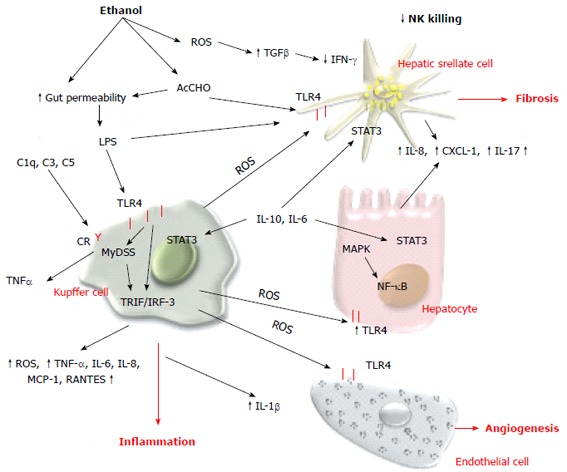Figure 4.

Alcohol and innate immune response. Both alcohol and acetaldehyde increase the intestinal permeability and lipopolysaccharide (LPS) level in the portal circulation. LPS binds to TLR4 and induces the proinflammatory phenotype of Kupffer cells. Acetaldehyde and LPS also stimulate parenchymal and nonparenchymal cells to produce proinflammatory cytokines and chemokines. The innate immune system also releases anti-inflammatory and hepatoprotective cytokines that activate STAT3 signaling in liver cells. ROS: Reactive oxygen species; LPS: Lipopolysaccharide; TLR4: Toll-like receptor 4; TNF-α: Tumor necrosis factor-α; IFN-γ: Interferon-γ; IL: Interleukin; NF-κB: Nuclear factor-κB.
